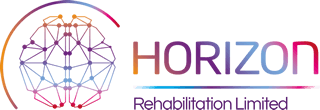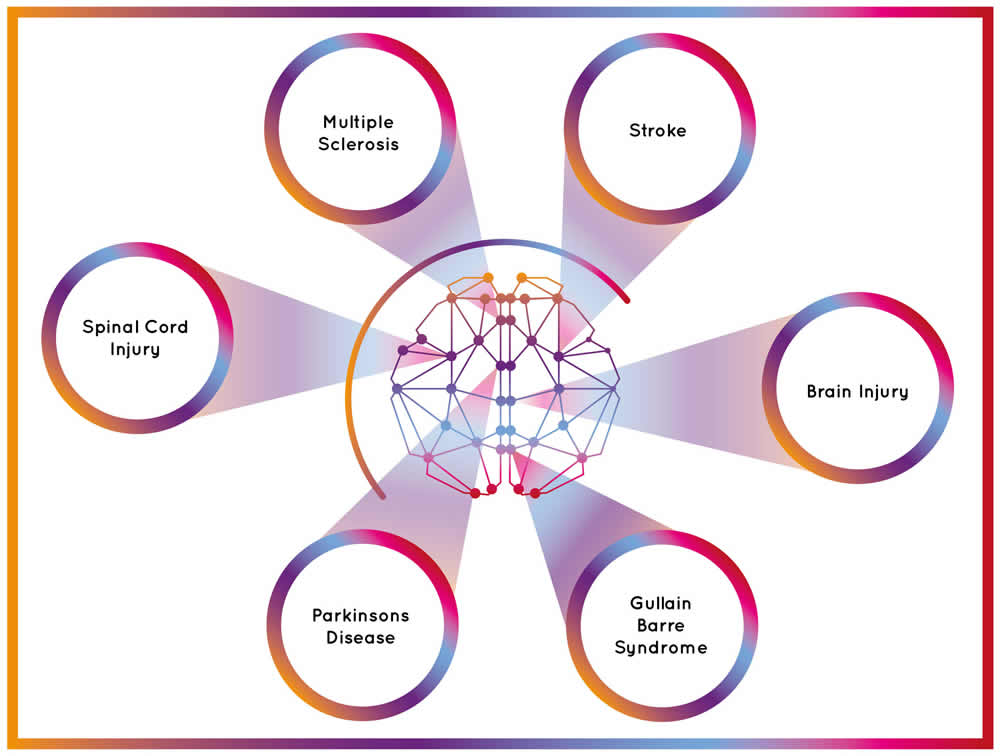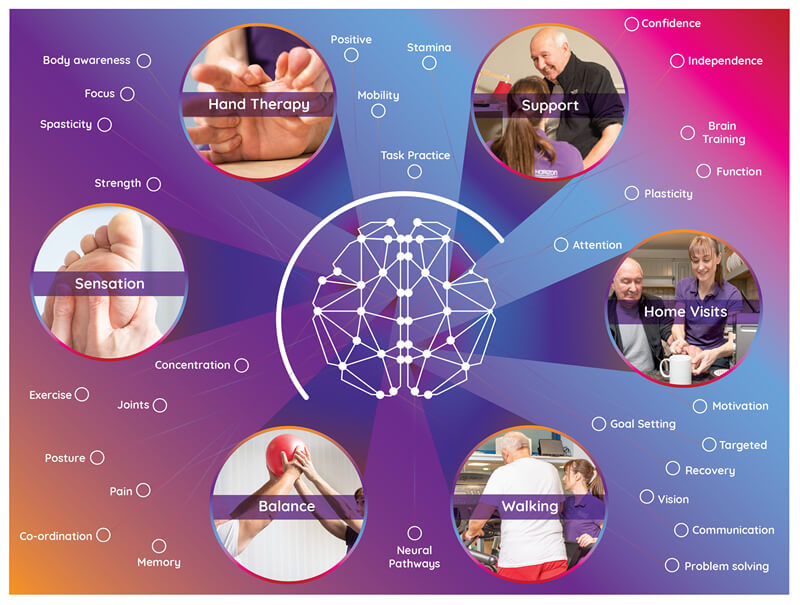The Physiotherapists and Occupational Therapist at Horizon Rehabilitation have extensive experience treating people with Neurological Conditions. The team also use their expertise to help people reach their potential when challenged with recovery from illness or surgery or when challenged with additional needs that need a bespoke approach like Dementia.
If you don’t see your condition here, please contact us to see how we can help
CONTACT USWhat is Neurological Physiotherapy?
The type of physiotherapy you may have encountered before is likely to be Sports or Musculoskeletal Physiotherapy. These physiotherapists deal with muscle and joint problems such as bad backs, sports injuries, surgery and arthritis.
Neurological Physiotherapy is different from other types of physiotherapy. Neurological Physiotherapists are all trained in musculoskeletal physiotherapy but we have specialised in the assessment and rehabilitation of people with neurological conditions.
Many factors can impact on how you are able to move. Neurological Physiotherapists conduct an holistic assessment of all of these factors and create an individualised programme that works for you.
It works by teaching your body and brain to change how these different systems interact, a process called neuroplasticity. Neurological Physiotherapy seeks to make positive changes which have an impact on your daily life.



